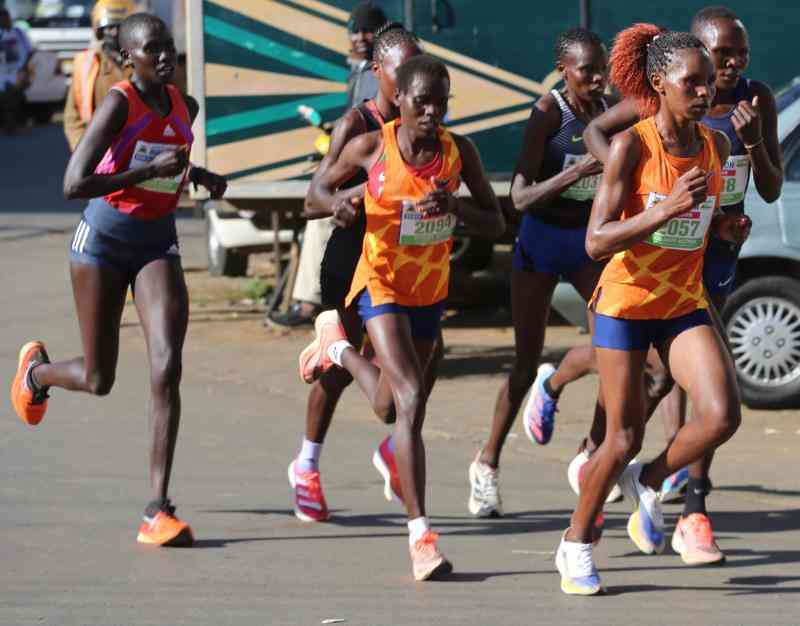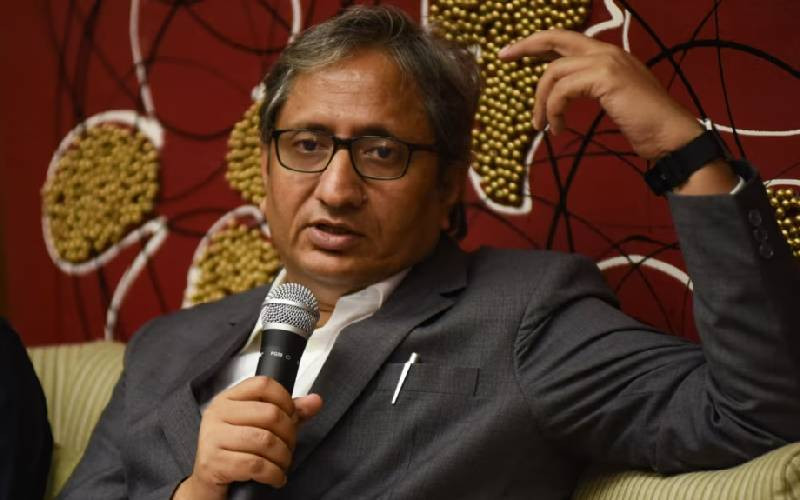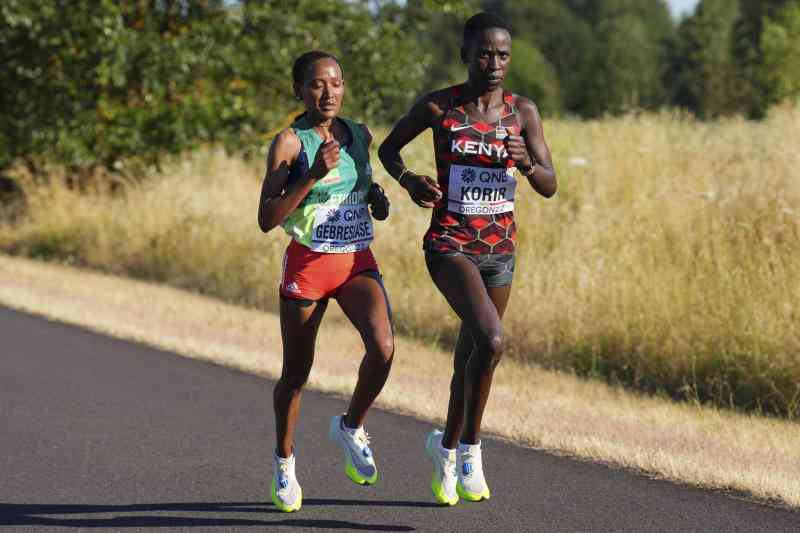Eldoret, Kenya - Journalists in Eldoret marked the World Press Freedom Day on Sunday by jointly converging for a Church service to seek divine intervention over increased threats to journalists in the region.
Commemoration of the press freedom day that was initiated by UN in 1993 comes three days after a senior scribe in the region was accosted and killed by unknown assailants and two other attacks on journalists.
Bishop Mike Bitok of the NOW International Ministries where the service was conducted called on the government to view the media as a partner in serving public interest and assure the practitioners a secure working environment.
“It is a special day to have journalists for a service as they mark their freedom day, they are authoritative professionals who have contributed to growth of democracy, taming corruption and exposing other ills of the society , there freedom at this era should be fully guaranteed by the State,” said Bitok.
The cleric called on the public and the state to positively view journalists as great contributors in the line of information flow and only apply constitutional measures to counter those who may have flouted the law.
Speaking earlier in Eldoret, Media Council of Kenya Chief Executive officer Harun Mwangi mentioned Uasin Gishu besides Mombasa, Trans Nzoia, Siaya, Nyeri and West Pokot among counties that have portrayed non-conducive job environments for the fourth estate members.
“There has been serious pressure from government agencies and the police that have compromised the work of journalists limiting their capacity to fully execute their mandate courtesy of the media freedom, such cases have been common in these regions,” he said.
Mwangi called on the government to operate within the constitutional limits and allow media the freedom to play the watchdog role effectively, saying that no country can achieve significant progress without a free press.
“Media is a key builder of democracy, governance and curbing ills like corruption and should be given space to operate with assurance of the journalists’ safety,” he added.
In reference to the specific heightening of threats to journalists, Mwangi said they will be conducting extensive and comprehensive training on the safety of practitioners to empower them to carry out the primary responsibility of securing their lives.
The killing of a veteran journalist on Thursday night in Eldoret town has put a dark cloud on journalists in the North Rift region, with some expressing fear of even receiving phone calls from new numbers due to threats and alleged tracking of their activities.
Journalists working with Nation Media Group and Citizen TV in were recently admitted at hospital with broken ribs and limbs following an attack by police officers while on duty, the journalists are based in Tana River.
Copperfield Lagat, Nation media reporter based in Eldoret was seriously injured on the head by assailants two months ago after they pounced on him at night when he came out of his house.
Threats have also been issued to an Iten based The Standard correspondent Fred Kibor and KTN Cameraman Simion Chepkwony where a particular politician and their supporters asked them to stop airing negative stories about the leadership issues of the area
Stay informed. Subscribe to our newsletter
Two years ago, Peter Ochieng, an Eldoret based photojournalist working with The Standard was also threatened following an investigative piece on three prominent farmers who were brutally murdered.
"The suspects behind the murder were later arrested and charged. It is unfortunate that even after such incidents our working environment is not safe, we always thank God when we see another the next day," said Ochieng.
In 2012, The Standard reporter Lucas Ngasike had to enlist the services of a Kenya Police Reservist (KPR) after he received death threats following an expose he wrote on how relief food was being sold in Lodwar.
Kenya Union of Journalists (KUJ) chairperson Oscar Obonyo noted that hyped political interests in the country has been identified as one of the major threat to the lives and working conditions of journalists.
"It is currently harsh environment where members of the fourth estate operate, this has been fueled by the extreme working conditions and oppressive laws that currently attempt to gag the freedom of the press.”
 The Standard Group Plc is a
multi-media organization with investments in media platforms spanning newspaper
print operations, television, radio broadcasting, digital and online services. The
Standard Group is recognized as a leading multi-media house in Kenya with a key
influence in matters of national and international interest.
The Standard Group Plc is a
multi-media organization with investments in media platforms spanning newspaper
print operations, television, radio broadcasting, digital and online services. The
Standard Group is recognized as a leading multi-media house in Kenya with a key
influence in matters of national and international interest.
 The Standard Group Plc is a
multi-media organization with investments in media platforms spanning newspaper
print operations, television, radio broadcasting, digital and online services. The
Standard Group is recognized as a leading multi-media house in Kenya with a key
influence in matters of national and international interest.
The Standard Group Plc is a
multi-media organization with investments in media platforms spanning newspaper
print operations, television, radio broadcasting, digital and online services. The
Standard Group is recognized as a leading multi-media house in Kenya with a key
influence in matters of national and international interest.








